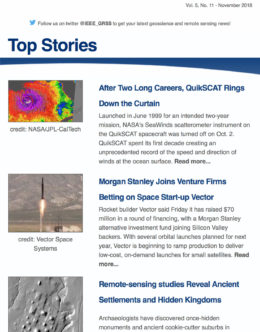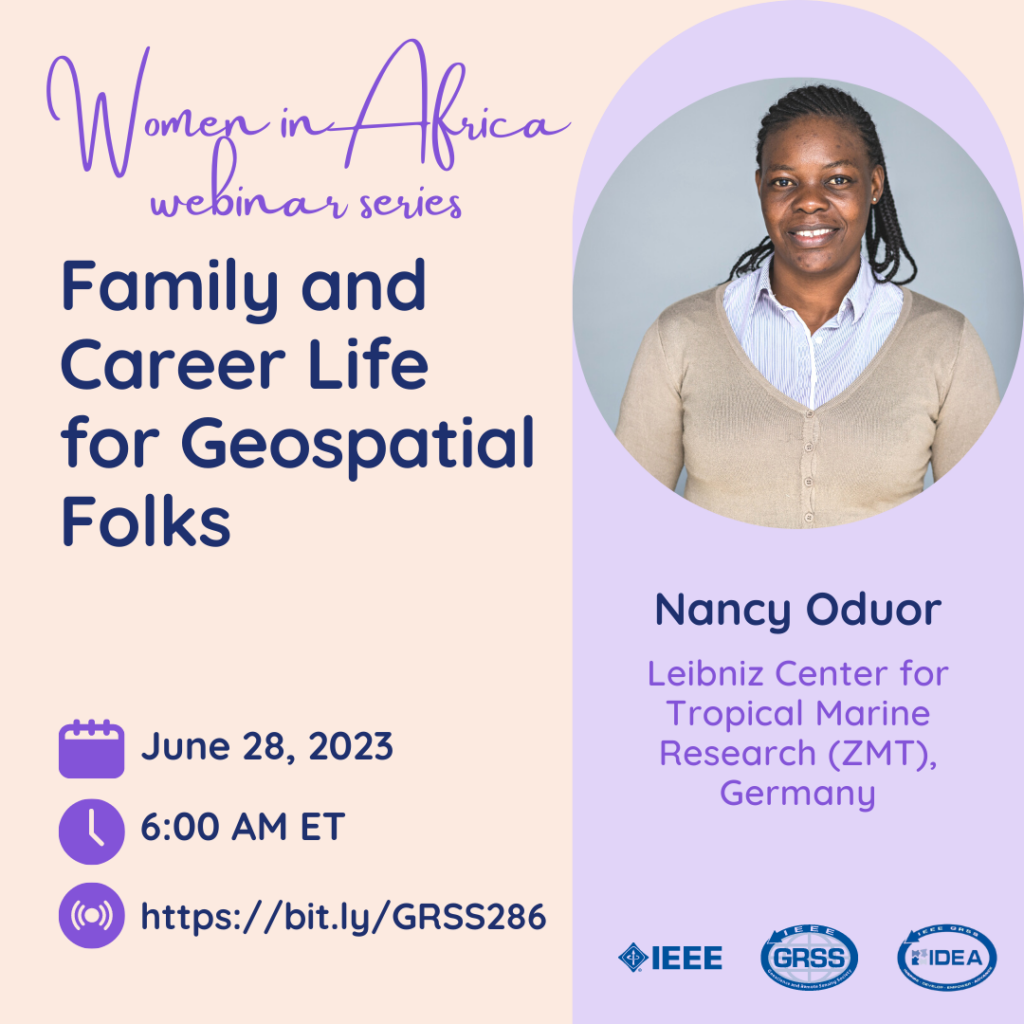
28 Jun 2023
In the webinar, our speaker will lead us through an interactive discussion on Understanding the family concept and the role of women in the African context; the geosciences field, what fits me? And Integrating family and a career in geosciences.
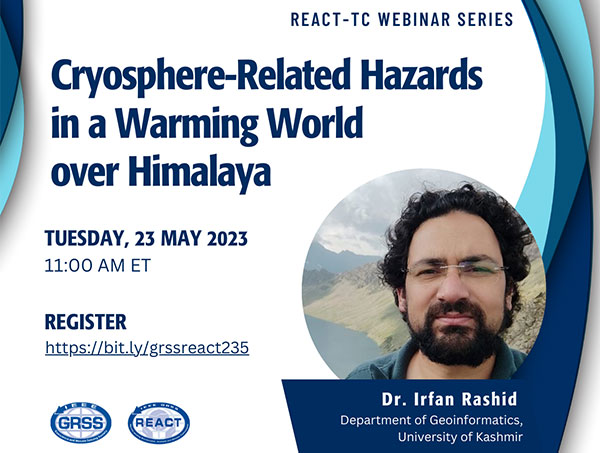

23 May 2023
This webinar, which is a precursor to a community contributed session at IGARSS 2023, sponsored by the REACT TC, aims to showcase how various stakeholders in the earth sciences and impact organizations are utilizing sensors, frameworks, and flood data to produce knowledge for flood assessment, mitigation, and recovery.
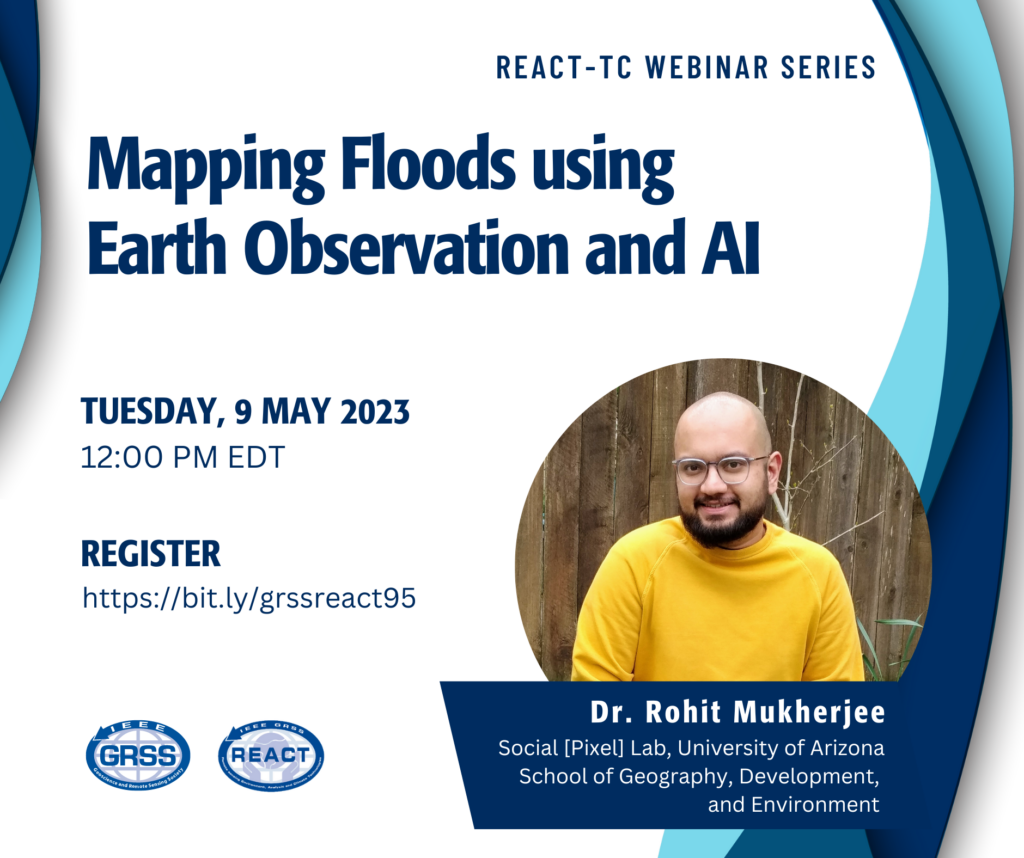

09 May 2023
This webinar, which is a precursor to a community contributed session at IGARSS 2023, sponsored by the REACT TC, aims to showcase how various stakeholders in the earth sciences and impact organizations are utilizing sensors, frameworks, and flood data to produce knowledge for flood assessment, mitigation, and recovery.
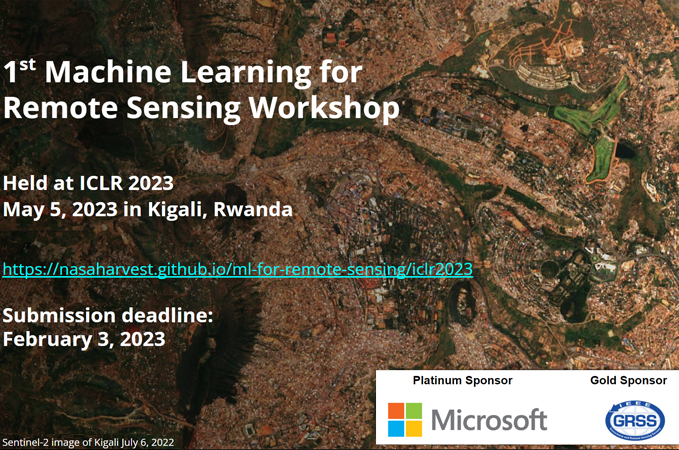

05 May 2023
This workshop aims to stimulate and highlight research on new methods, datasets, and systems for machine learning for remote sensing data and especially encourage submissions and discussions about research in the African context.
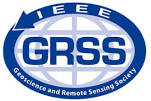



04 May 2023
Technological capabilities in Earth observation (EO) systems are rapidly changing. Understanding these trends allows for developing baselines for future technology performance projections that can guide mission planning and technology investments decisions. The empirically derived technological trajectories are projected for mid (2030) and long-term (2040) scenarios and implications for technology portfolio
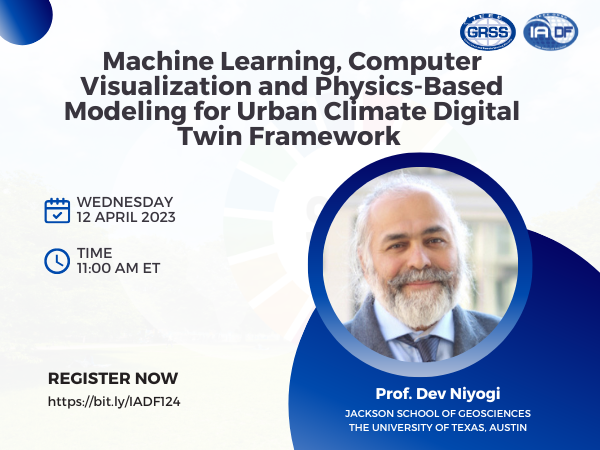

12 Apr 2023
This talk will present some ongoing work and highlight upcoming challenges and opportunities under the urban climate digital twin framework that is being continually constructed to study and model weather / climate processes for complex systems and settings like cities, surrounding areas and neighborhoods.




06 Apr 2023
In this talk, we focus on the recent developments toward distributed integrated sensing and communications (ISAC). We consider a broad definition of coexistence, which covers ISAC, collaborative communications, and sensing with interference.




27 Mar 2023
IEEE GRSS Summer School Hyderabad Section presents you an opportunity for all the creative minds to introduce the participants to different agriculture data platforms already available and will encourage them to discover the scope and utility of the open data platforms for analytics and intelligence in agriculture.


22 Mar 2023
Radiative transfer equations and analytical multiple scattering theory of waves have been applied to microwave remote sensing since the 1980’s. With the advance of computers and computational electromagnetics, Numerical Maxwell Model of 3D simulations has gained importance. In this webinar, we start with dense media full-wave simulations. Next, we describe 3D simulations of rough surface scattering.
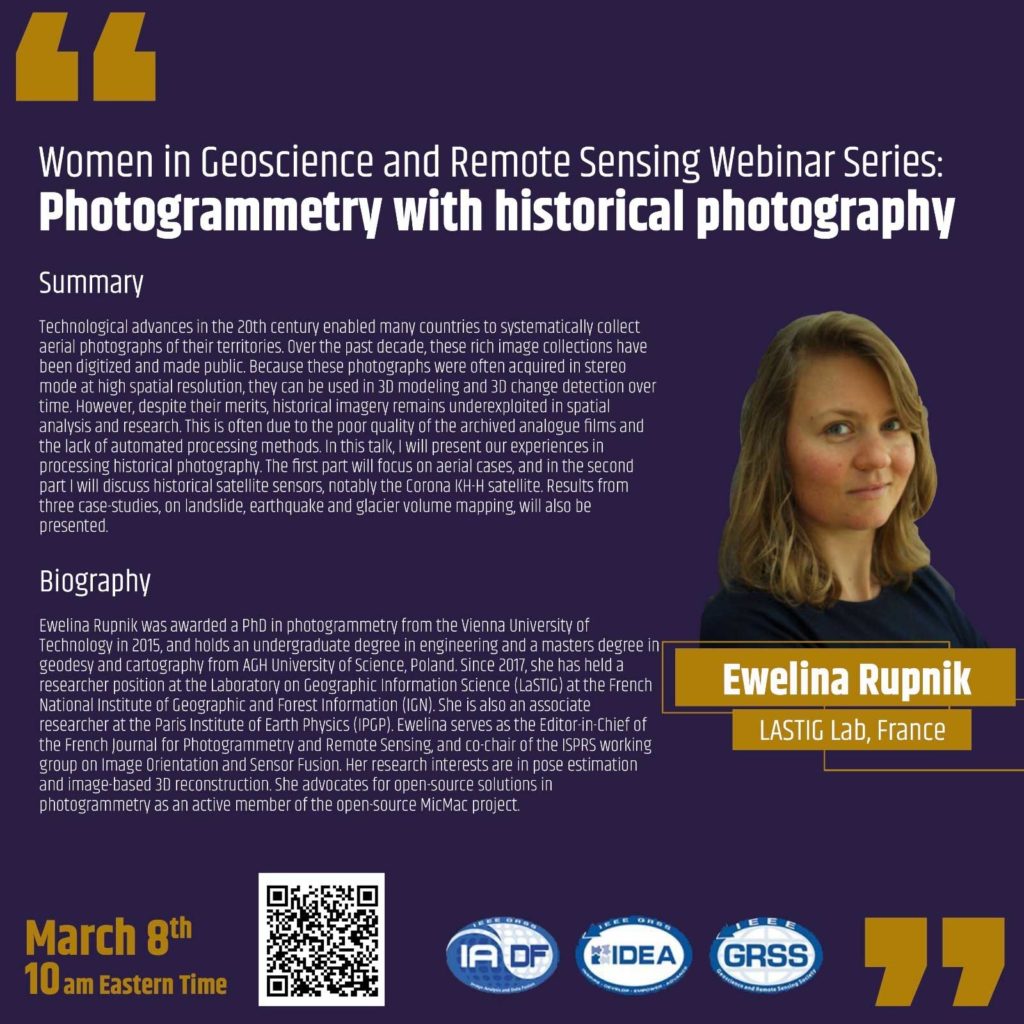

08 Mar 2023
Traditional active radars transmit a powerful electromagnetic pulse and record the echo's delay time and power to measure target properties of interest, such as range, velocity, and reflectivity. Such observations are critical for investigating current and evolving conditions in extreme environments (i.e., polar regions and planetary missions); however, existing radar systems are resource-intensive in terms of cost, power, mass, and spectrum usage when continuously monitoring large areas of interest. I address this challenge by presenting a novel implementation of passive radar that leverages ambient radio noise sources (instead of transmitting a powerful radio signal) as a low-resource approach for echo detection, ranging, and imaging.
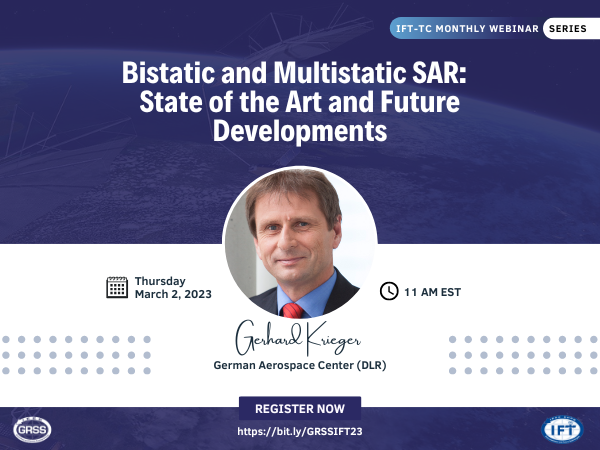

02 Mar 2023
Traditional active radars transmit a powerful electromagnetic pulse and record the echo's delay time and power to measure target properties of interest, such as range, velocity, and reflectivity. Such observations are critical for investigating current and evolving conditions in extreme environments (i.e., polar regions and planetary missions); however, existing radar systems are resource-intensive in terms of cost, power, mass, and spectrum usage when continuously monitoring large areas of interest. I address this challenge by presenting a novel implementation of passive radar that leverages ambient radio noise sources (instead of transmitting a powerful radio signal) as a low-resource approach for echo detection, ranging, and imaging.
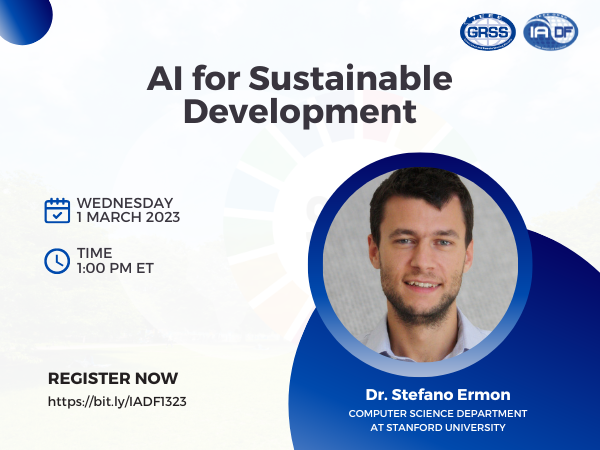

01 Mar 2023
In this talk, I will present new approaches for learning applicable spatiotemporal models in contexts where labeled training data is scarce or not available at all.









